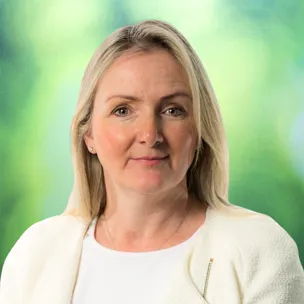What Happens if You Don’t Get a Financial Order?
If you don’t get a Financial Order before your Divorce is finalised, this could result in either:
- Your former partner applying to the Court in the future for financial relief
- You or your former partner being prohibited from applying to the Court for financial relief, which is known as the “remarriage trap”.
There is no specific time limit for you to make an application for a financial remedy against your former partner.
At Simpson Millar, we’re dedicated to making sure that our clients understand their position and their case as thoroughly as possible, so that they have the knowledge and support they need to proceed with getting a Financial Order in the right way and to the right timelines where necessary.
Our Divorce Law team is friendly and approachable, and we’re here to make the process of getting a divorce and getting a Financial Order as easy and stress-free as it possibly can be, by providing open and honest legal support and advice to our clients.

Lose Any Ability to Claim
If you decide to remarry before you make an application for a Financial Order, you may lose any ability to claim any financial relief from your former partner. This is also reversed, so if your partner was the respondent in the divorce proceedings and they remarry and they haven’t made an application for a Financial Order, they cannot now make an application for financial relief unless the asset has their name on it and even then the court cannot change a parties share in the asset only confirm it. This again is known as the remarriage trap.
The only exception to this is possibly an application for a Pension Sharing Order.
We can listen to and seek to understand your case and situation further. We will then use the information and evidence we have, paired with our expert knowledge and experience, to work out your rights and let you know whether you can claim and make a Financial Order.
If we conclude that you can get a Financial Order, we will continue to guide you to help you in this process. If a Financial Order isn’t possible in your current situation, we can advise you on any other potential options available to you.
How to Get a Financial Order
You can get a Financial Order from the Court in one of two ways. You can make an application for:
Consent Orders
If you and your former partner can reach an agreement, it’s important that you both provide full disclosure of your financial circumstances. This will make sure that both you and your former partner are aware of what assets form part of the “matrimonial pot”. It also means you can both get independent legal advice about the financial settlement to make sure you are protected.
Once this happens, a Consent Order is prepared and signed by both of you. Providing the Decree Nisi has been pronounced in the Divorce proceedings, the Consent Order can be lodged at Court for a Judge to consider.
Divorce Financial Orders
If an agreement cannot be reached, financial proceedings must be issued at Court. The Court will provide various directions. These will include asking for disclosure of each person’s financial position and to help you both try to reach an agreement. If an agreement still cannot be reached, the matter will be listed for a final determination and the Court will impose a Financial Order on both of you.
In other words, a Judge will decide and you are both legally bound to abide by the terms of the Financial Order. The Judge will consider all of the financial information provided, and work to produce an agreement which is fair to both parties.
But, it’s important to note that the Court system has experienced massive strain and overwhelm recently, especially following the financial and staffing issues after the Covid-19 pandemic. For this reason, it is usually suggested that ex-spouses try and reach an agreement (in terms of Financial Orders) outside of Court, if possible. This will help take the strain off the Court system. In addition, going to Court can be stressful for everyone involved, and you want to naturally reduce stress as much as possible in situations that are already fraught enough, like divorce cases.
There are several ways of coming to an agreement outside of court. Whether it’s through negotiation or mediation, there are options if you’re not ready to discuss things one-to-one with your ex-spouse.
Wife’s Successful Claim 22 Years after Divorce
In the divorce case of Wyatt v Vince (2015), a wife and husband divorced 22 years before an application for financial relief was pursued. In the intervening years, Mr Vince made millions of pounds in his green energy wind farm business. His ex-wife sought payment of £1.9 million from him.
Because Mr Vince did not create his wealth until 13 years after the breakdown of the relationship, he sought to have his ex-wife’s application dismissed on the basis that it was an abuse of the Courts process.
However, the Court confirmed, “there is no time limit for seeking an order for financial provision or property adjustment for the benefit of a spouse following divorce”. That meant that Mr Vince’s ex-wife did have a right to proceed with her claim. The delay in issuing the application was a significant factor in considering her award, which was greatly reduced from the amount she was requesting.
This demonstrates that no matter how long ago you were divorced if you didn’t get a Financial Order or a Consent Order, you could be exposed to a claim at any point in the future.
So, whether you’re just starting the process of getting divorced, or if you’ve been divorced for a while but you didn’t get a Financial Order or a Consent Order, get in touch with our team of Family Law Solicitors for expert legal advice.








